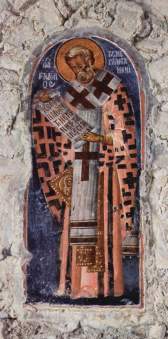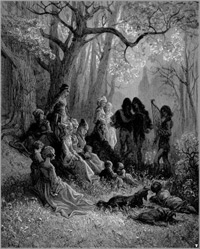Medieval Era: Important Composers

Hildegard von Bingen (1098-1179), a twelfth century nun from Germany, was the most widely acknowledged composer of the Medieval era. A respected scholar as well as prolific composer, von Bingen was considered a visionary. Not only is she credited with being one of the earliest known composers, but she was also a woman working in a field where traditionally women did not work. Outside of the church, secular (non-religious) music was performed throughout Europe by traveling musicians known as troubadours (southern France and northern Italy), minnesingers (Germany), or trouvères (in central and northern France). Many of the troubadours were uneducated. Secular music, as a result, was less musically complex than sacred music. This also provided a clear distinction between the educated and uneducated—the rich and the poor.
.
Due to their lack of education, the troubadours did not write down their music, so very little of it has survived. As a result, most secular music from this era has the name "anonymous" attached to it.

An important secular composer from this era is Frenchman Guillaume de Machaut (1300-1377). Machaut is considered one of the most important composers of the fourteenth century. A prolific poet, Machaut wrote musical settings for many of his own poems. Not only did he compose more music than anyone else of this era, his music encompasses a wide variety of musical styles and forms.
.